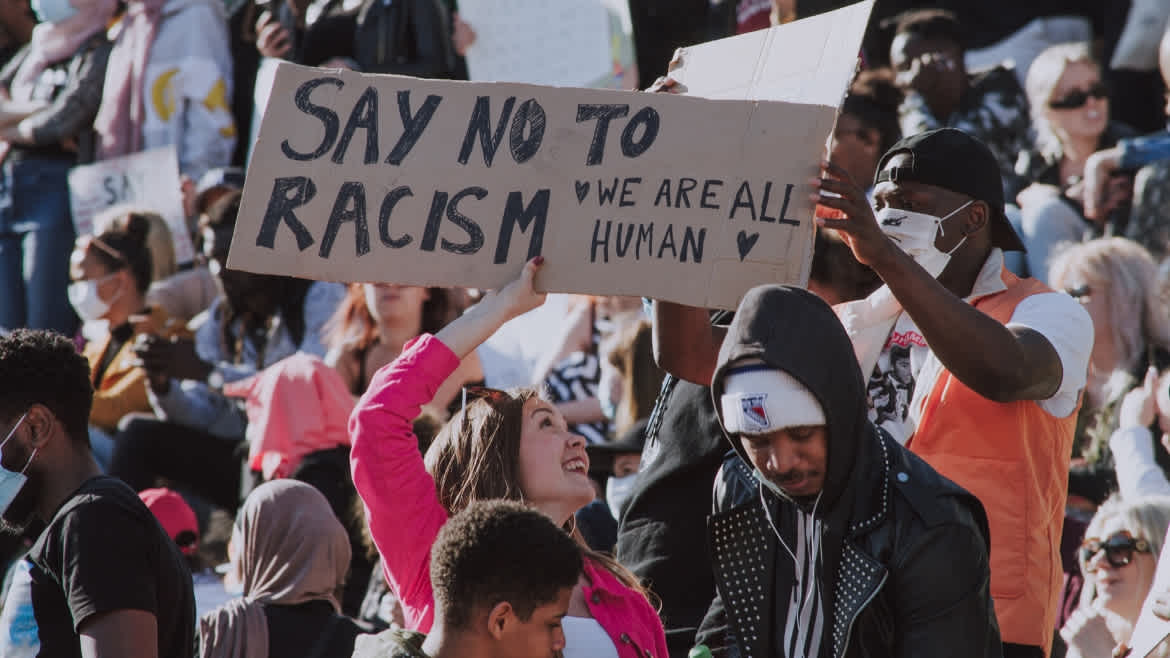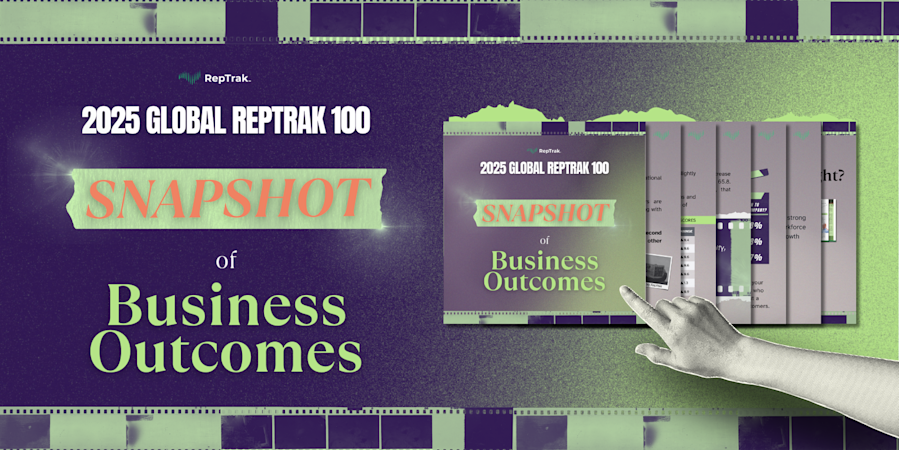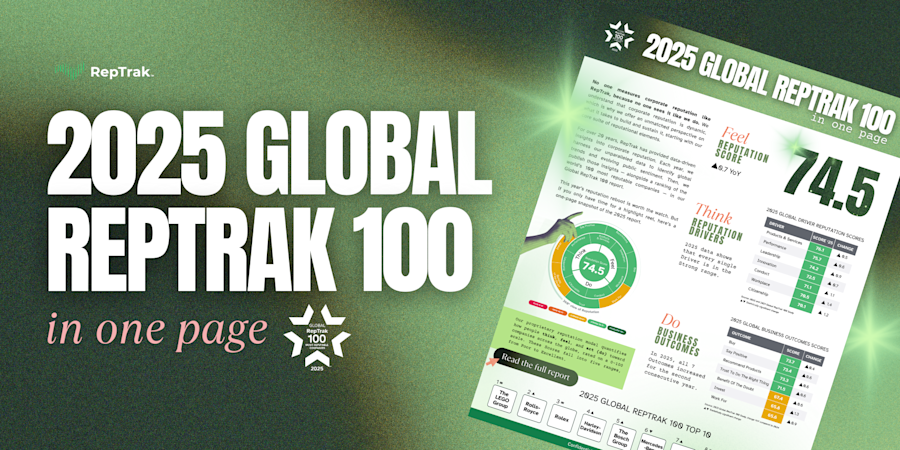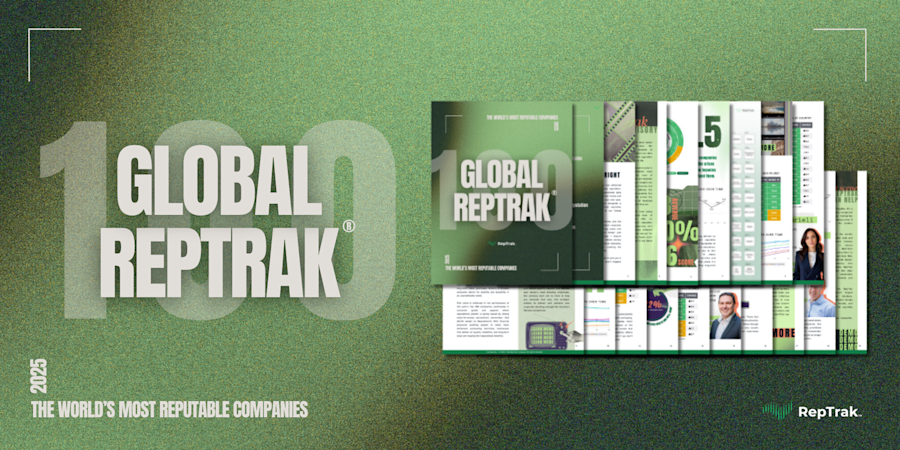Doing and Saying the Right Thing: How Companies Are Taking a Stand for Black Lives Matter
Blog Post11 Jun, 2020
Since the death of George Floyd in Minneapolis on May 25, reactions around the world have been staggering. From big cities to small towns, in the United States and beyond, people have taken to the streets to voice their support of the Black Lives Matter (BLM) movement and to see justice for Floyd and other Black men and women who have been killed needlessly.
In a time when consumers now expect brands to take a stand on important issues, and do the right thing, many companies have stepped up—just as they did during the coronavirus pandemic. Across industries, companies are voicing their support for BLM through their social media channels, and are donating their money and time to organizations that support minority communities.
It’s no secret that being a socially responsible company is good for business. And of course, corporate responsibility goes beyond simply posting a message or writing a check. So it’s encouraging that many brands are also taking the opportunity to commit to meaningful change within their organizations and in their communities.
In that spirit, we would like to recognize some of the companies that are staking their reputations on the belief that supporting the BLM movement is the right thing to do. It’s worth noting that, while it's heartening that there have been so many responses worth mentioning, this blog post doesn’t cover every company and every effort. And in many cases, whether and how some brands are committing to this particular issue is still evolving. Please consider this blog post a representative sampling of the corporate response.
Communicating their support and outrage
If they are doing nothing else, many companies are communicating their support for justice and racial equality.
Of course, many companies are going beyond a simple message. In The Walt Disney Company’s message to employees, CEO Bob Chapek, Chairman Bob Iger, and Senior Vice President and Director of Diversity LaTondra Newton wrote, “While we don’t have all the answers, we resolve to use our compassion, our creative ideas and our collective sense of humanity to ensure we are fostering a culture that acknowledges our people’s feelings and their pain.”
Disney also pledged $5 million to social justice organizations, including the NAACP, and pledged to match employees’ donations.
Apple CEO Tim Cook condemned the killing of George Floyd in a message to his employees. “We can have no society worth celebrating unless we can guarantee freedom from fear for every person who gives this country their love, labor and life,” Cook wrote.
In a message published on LinkedIn, CEO and Chairman of BlackRock investment company, Larry Fink, had this to say: “For our employees suffering pain from these tragedies, I want you to know that ... the firm’s leadership stands with you, and we are listening. We will do everything we can to support you and give you the space to express your feelings and concerns.” The company’s leadership has pledged to build a more inclusive and racially diverse firm.
CEO Grant F. Reid shared a strong statement with Mars employees in which he declared that “acting like a community in support of one another is how we will thrive. There is no room for discrimination in a healthy society.”
Evan Spiegel, CEO of Snap Inc., creators of SnapChat called for increased taxes in an email to employees, in order “to create a society that benefits all of us.”
And finally, Ben & Jerry’s shared a powerful call to action, entitled “We Must Dismantle White Supremacy,” not only showing the company’s unwavering support for the Black Lives Matter movement and George Floyd’s family, but demanding action from Congress, the president, and the Department of Justice.
“Unless and until white America is willing to collectively acknowledge its privilege, take responsibility for its past and the impact it has on the present, and commit to creating a future steeped in justice, the list of names that George Floyd has been added to will never end,” the message read.
Becoming a vehicle for change
Company executives have been writing open letters to announce real action on behalf of their brands. Many companies are using their brand authority and established reputations to bring about tangible change in their communities.
Target, which was forced to close some stores after looting during riots in cities across the nation, is now helping to lead the cleanup effort in Minneapolis. And, in addition to its $10 million donation to the National Urban League and other partners, the company is providing free consulting services in the Twin City area for small businesses owned by Black and minority entrepreneurs. Its Circle app also allows guests to donate directly to nonprofits of their choice.
The Coca-Cola Company is also using its significant brand identity to enact change. In addition to donations and organizational changes, the beverage company has pledged to advocate for legislation to advance a hate-crimes law in Georgia, where its headquarters is located.
In a town hall with employees, Coke’s Chairman and CEO James Quincey said, “We believe our company and our brands have the power to drive change. And we want to get this right.”
H&M is donating $500,000 to social justice organizations. But the company also announced that it will be building stronger relationships with Historically Black Colleges and Universities to increase community events that empower the Black community. And it will be working to increase voter registration.
In a letter to Congress, IBM announced that it would no longer develop, research, or sell general purpose facial recognition or analysis software. Facial recognition technology often results in age, race, and ethnic bias, which can make the tools unreliable for law enforcement and security, and increase the potential for civil rights abuses. (Amazon and Microsoft made similar announcements.)
Finally, Walmart is using its significant brand power to affect change across the board. To start, it is committing $100 million toward creating a new foundation for racial equity. It’s expanding its Walmart health centers to make healthcare more accessible to all, and it is strengthening its relationships with Historically Black Colleges and Universities, as well.
In addition, Walmart CEO Doug McMillon, who heads up the 181-member Business Roundtable, announced that the group of leaders would form a special committee to advance racial equality and justice solutions. “What we see is a moment here, a moment where we can make a bigger difference,” he said.
Changing from within
Many companies understand that real change has to come from within their own organizations, as well. Some are creating open dialogue within the company, others are changing their recruiting and organization policies, and one company is changing its product altogether.
Benno Dorer, Chair and CEO of the Clorox Company penned a message to employees entitled “We Need to Do More. We Need to Be Better.” In it, he pledged a $2.5 million donation, but also highlighted some of the efforts the company will implement from within. Those include recruiting from underserved communities and requiring executive team members to volunteer at organizations that address racial injustice.
William P. Lauder, Executive Chairman, and Fabrizio Freda, President and Chief Executive Officer, announced in a joint statement that the Estée Lauder Companies were making several commitments to racial equity, including to at least double the amount it currently spends on sourcing ingredients, packaging materials and supplies from Black-owned businesses over the next three years.
Dance wear company Capezio is a great example of a company responding directly to its customers. After a petition circulated in the first days of June demanding race-inclusive dance wear, president and CEO Michael Terlizzi responded on the company’s Facebook page. “We have heard the message of our loyal dance community who want pointe shoes that reflect the color of their skin.” This fall, they will offer their two most popular pointe shoes in darker colors to match all skin tones.
Finally, JP Morgan Chase is committing its financial support, and using its financial power to make homeownership more accessible in Black communities and help minority-owned small businesses thrive. It has also pledged to hire and mentor more Black students.
Using the power of the media
Media is now so intertwined with brand identity, it’s only natural that companies are using their content-generating power to convey their message. From traditional ads to thought-provoking movies and shows, brands are sparking conversation and demanding change.
In addition to financial commitments and the creation of programs to advance people of color in science and tech, Procter & Gamble is re-releasing its award-winning films that provoke conversations on race and equality. The Talk and The Look will be aired broadly. It has also released a new film called The Choice, and will be sponsoring other programs and films that address racial inclusiveness, as well.
Nike earned a lot of attention for flipping its logo from “Just do it” to “For once, don’t do it” in a 60-second ad spot. The ad was meant to urge Americans not to ignore the racial inequality highlighted by both the George Floyd murder and the COVID-19 crisis. This was in addition to a $40 million commitment over four years in collaboration with both Michael Jordan and Converse to promote racial equality.
Streaming services also used their media clout to convey their support for the Black Lives Matter movement. On June 2, Spotify, Apple Music, Amazon Music, and YouTube participated in Blackout Tuesday. The streaming services added moments of silence and special playlists to commemorate the death of George Floyd. Meanwhile, ViacomCBS went dark for eight minutes and 46 seconds, the amount of time Derek Chauvin knelt on George Floyd’s neck.
Comcast announced a $100 million, multi-year plan to advance social justice and equality, including a deepening of the company’s long-standing commitment to addressing digital inequities, which disproportionately impact communities of color.
Paramount Pictures, Warner Bros., Netflix, and other entertainment companies made films such as Selma, Just Mercy, The 13th, and The Hate U Give, which tackle racial issues, available to watch for free on streaming platforms.
And major publishers such as Penguin Random House provided lists of books for both children and adults to educate and spark conversations about racial disparity.
Taking a stand on social media
Brands have leveraged their social media influence to support the Black Lives Matter movement and condemn racial inequality.
Microsoft is using its social platforms to share quotes from Black employees.
Twitter changed its profile to support Black Lives Matter, turning its avatar from blue to black and adding #blacklivesmatter to its bio. CEO Jack Dorsey also announced that Twitter has declared June 19, Juneteenth, the day commemorating the end of slavery in America, to be a company holiday.
Sephora is using its social platforms to spotlight the work of individuals and organizations that are working toward racial equality. It is also calling pledging to devote 15% of its shelf space to products from Black-owned businesses.
And, displaying the power of social media influence around the world, following an announcement that K-Pop stars BTS and their record label, Big Hit Entertainment, had donated $1 million to Black Lives Matter, fans rallied on social media using the hashtag #MatchAMillion to more than double that amount.
Donating to organizations fighting racial injustice
We have already noted some of the companies donating large amounts of money, but they are only the tip of the iceberg. In the last two weeks, a host of companies have donated significant amounts to support organizations that fight racism and discrimination.
On June 3, the LEGO Group tweeted a pledge to donate $4 million to organizations dedicated to supporting Black children and educating all children about racial equality.
On May 31, YouTube released a video announcing it would donate $1 million to the Center for Policing Equity, a think tank that works with police departments to end discriminatory practices.
Facebook CEO Mark Zuckerberg announced that his company would be donating $10 million to organizations working on racial justice. In addition, the company announced that it would cancel all company meetings on June 19 and would instead commemorate Juneteenth with a day of learning. "We all have a responsibility to help give voice to underrepresented communities around the world. Our goal is to learn more so that we can do more," a company spokesperson said.
Verizon has also pledged $10 million to organizations working toward racial justice, including the National Urban League and the Leadership Conference for Civil and Urban Rights. CEO Hans Vestberg stated that Verizon “cannot commit to a brand purpose of 'moving the world forward' unless we are committed to helping ensure we move it forward for everyone.”
Bank of America announced it is committing $1 billion over four years to help local communities address economic and racial inequalities stemming from the pandemic and brought to the fore by national protests.
Shoe company Toms announced on Instagram that it would donate $100,000 to organizations fighting racial injustice and suggested specific ones for followers to donate to.
Lyft is providing $500,000 in ride credit to national civil rights organizations that have been trying to provide access to transportation during the pandemic as well as the protests.
Wendy’s has promised $500,000 to support social justice, the youth and education in the Black community starting with the Thurgood Marshall College Fund. Known for its cheeky Twitter feed, it tweeted, “We’re about putting our money where our mouth is. So here’s our money and here’s our mouth.”
Amazon is also donating to the Thurgood Marshall College Fund, among other organizations supporting justice and equality, their pledge totaling $10 million.
PayPal is donating $500k to organizations including the NAACP Legal Defense Fund, National Urban League, and other local community groups that are doing meaningful work to build toward racial equality, healing and reconciliation.
The Anheuser-Busch InBev family of brands made multiple announcements of support and charitable giving, including one by Michelob Ultra to donate $350,000 to non-profit organizationsthat are making an impact in the Black community.
Everlane, an ethically sourced clothing company, announced on Instagram that it is donating $75K to the Equal Justice Initiative and $75K to the ACLU, through its 100% Human initiative.
And in probably one of the biggest donations to date, Michael Jordan and the Jordan Brand announced that it is donating $100 million over 10 years to “organizations dedicated to ensuring racial equality, social justice and greater access to education.”
Reputational impact
As events unfold, it’s not smart for companies to remain silent on the issue of racial disparity. Social responsibility is now integral for every company’s business plan. Where companies once remained on the sidelines when it came to hot-button issues, they are now willing (and expected) to take a stand and support the causes they and their customers care about.
To that end, a recent Monmouth University poll revealed 76 percent of Americans think that racism and discrimination in the U.S. is a big issue and 57 percent say the anger that led to the protests is justified.
Our own data reveals that having a CEO who is overly neutral or non-committal on issues that matter to the world can actually damage what people feel about the company as a whole. In our 2020 Global RepTrak study, reputation among respondents who strongly considered whether a company’s CEO took a stand on key issues was excellent, while it was weak when they felt the CEO could have done more.
And of course, it's important for companies to be genuine about their efforts. While our Global RepTrak study shows that the most reputable companies in the world are strong in each of the seven Drivers of reputation, when a company is perceived as “genuine,” it can lead to a 2.9-point lift in Reputation Score. In other words, a quick note of support on social media won’t cut it if the company’s actions otherwise send a different message.
As the anger over the racial inequality spotlighted by the COVID-19 pandemic and sparked by the death of George Floyd grows, consumers are noticing that more and more brands are using their influence to enact change and solidify their reputations as socially active organizations. Hopefully it will last.
Which companies' efforts to do and say the right thing have impressed you? We'd love to know! Share your thoughts on social media using the hashtag #RepTrak.
Martin Lieberman Director, Content Marketing The RepTrak Company





